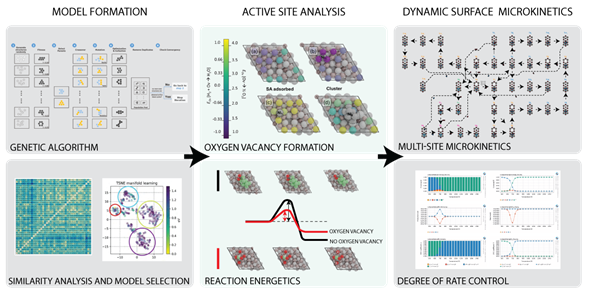Title: Molecular Mechanisms of Adsorption of Polar Molecules in Porous Materials for Energy Storage Applications
Speaker: Vicent Luna (TU/e MSM group)
Time: Nov. 24, 2022, 10:00–11:00
Location: TU/e Disruptor 0.30 and online (MS Teams)
Abstract | Adsorption of small polar molecules, such as ammonia, light alcohols, or water in porous materials is receiving significant attention because these compounds are used in a wide range of applications. Despite the differences between these polar molar molecules, they have a common application; they are used as refrigerants for energy-related applications. In recent years, thermal energy storage has become a key technology for improving the efficiency and sustainability of heat storage applications to reduce carbon dioxide emissions. These systems use the energetic exchange during the adsorption/desorption of working fluids in porous materials. Therefore, understanding the adsorption mechanisms is crucial to improve the performance of energy storage devices.
In this work, I review the adsorption of the above-mentioned molecules in various porous materials from a molecular simulation perspective. As adsorbents, we studied zeolites, metal-organic frameworks, activated carbons, and mesoporous carbon matrices. In this regard, we considered challenging mechanisms such as 1) a complex network of cage connections of the porous adsorbent, 2) the effect of framework flexibility in the adsorption, 3) the role of functional forms on the framework surface or impurities, and 4) the modeling of non-crystalline materials. We combined molecular dynamics, Monte Carlo, and energy minimization simulations to describe the mentioned mechanisms at the molecular level. The results were tested and validated against experiments, thus providing insights that are challenging to find in laboratory measurements.
The CCER seminars are aimed at researchers interested in computational approaches to (energy) research. The seminar is small-scale, typically 15 participants, and interactive, offering lots of room for discussion. If you would like to attend, just This email address is being protected from spambots. You need JavaScript enabled to view it. so as to receive the MS Teams meeting link.







